On to the year 1997 in our journey to find the Best Movie of all time. If you’re new to this Best Movie Bracket. You can learn more on my Best Movie Bracket Page. There you can explore the whole idea as well as 20 years worth of reviews and countdowns. 1997 was monumental, Harry Potter and the Philosopher’s Stone was first published and would soon set the world on fire with Pottermania. Scottish scientists successfully cloned Dolly the sheep, we landed a rover on Mars, and we mourned the loss of Princess Diana.
But the biggest news in the film world was of course James Cameron’s epic Titanic. It opened in December and overshadowed everything else that was released that year and even into 1998. Even by today’s standards, many of the effects are amazing and ambitious. It was nominated for 14 Oscars tying 1950’s All About Eve and took home a record tying 11, sharing that feat with 1959’s Ben-Hur. It was the first film to ever cross the $1 Billion earnings mark staying at the top of the box office charts for 15 straight weeks and within the top ten for 26!
You won’t find Titanic on the top of my 1997 best list. I thought it was a good disaster film on par with The Towering Inferno, or Dante’s Peak with a uninteresting romance thrown in between Leonardo DiCaprio and Kate Winslet. I consider myself a fan of both of these actors, but I don’t think it is their best work, and it appears that I’m not alone in this. The only major acting award received for Titanic was a tie at the Screen Actors Guild for best supporting actress for Gloria Stuart. The other two Oscars that Titanic didn’t take home were for screenwriting. Those went to my top two.
1. L.A. Confidential
I find it funny how Kevin Spacey and Kim Basinger get the top billing and focus in marketing. When you look at Russell Crowe and Guy Pearce today, it is obvious that they are big name stars. But they owe their Hollywood status to the late director Curtis Hanson. He went out on a limb and took this script that he spent years adapting and put it in the hands of two relative unknowns from Australia who hadn’t even perfected their American accents.
It is a great film that captures the look of this hard-boiled noir time-frame all while feeling modern and supremely entertaining. In addition to the big four characters which is still a lot of most films, we still have James Cromwell, Danny Devito, David Strathairn, Paul Guilfoyle, Ron Rifkin, and even a pre-Mentalist Simon Baker. The story moves very well and we have enough character development to fill several movies. The world feels lived in and tactile. There is action, humor, and plenty of twists and turns to make this one of the most engaging films of the 1990’s.
2. Good Will Hunting
Is this a movie about a kid from the wrong side of the tracks trying to cope with the fact that he is smarter than the average Southie, and even smarter than those stuffed shirts at MIT? I guess that is the basic plot, but it is really much deeper than that. Honestly, his genius really only becomes the reason that anyone cares about him, which is pretty sad. He uses his genius to build his walls higher and thicker, but the walls were put there in the first place through abuse. Abuse that is all too common and is often unnoticed. If Will was just an average guy from Southie like his buddies played by Ben and Casey Affleck would we even see him speaking to a therapist? No, he would have been in jail or worse. 
So, we need that piece of the puzzle to pull the movie along, but in reality, the movie is about how to be a friend, how to form relationships, and how to embrace commitment. Matt Damon and Robin Williams establish a great chemistry together and their scenes together make the film. The whole film rests on Sean’s relationship with Will. Is he going to fold under the hostility and egotistical superiority of this savant? Or will he look deeper than the math problem that is Will Hunting’s genius and actually care about him as a person? And by treating the person can he teach Will how to let others in and how to make a commitment?
Honorable Mentions
- Contact
- Boogie Nights
- Gattaca
- As Good As It Gets
- In the Company of Men
- Chasing Amy
- Grosse Point Blank
- Conspiracy Theory
- The Fifth Element
- Face/Off
- Con-Air
- Men in Black
So, where were you in 1997? What fond memories do you have? Did I mess up my sinking the Titanic? Did I leave out on of your favorites? let me know in the comments below. You can also share what you enjoy about the top films on social media using the #BestMovieBracket. Thanks for joining me!
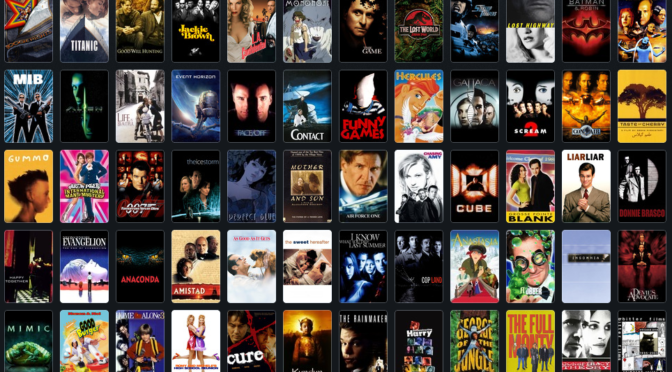
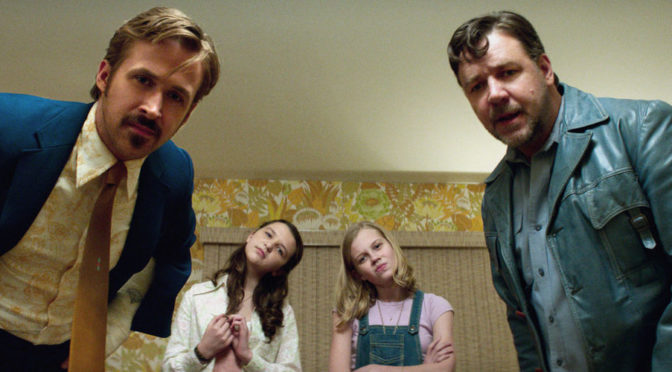
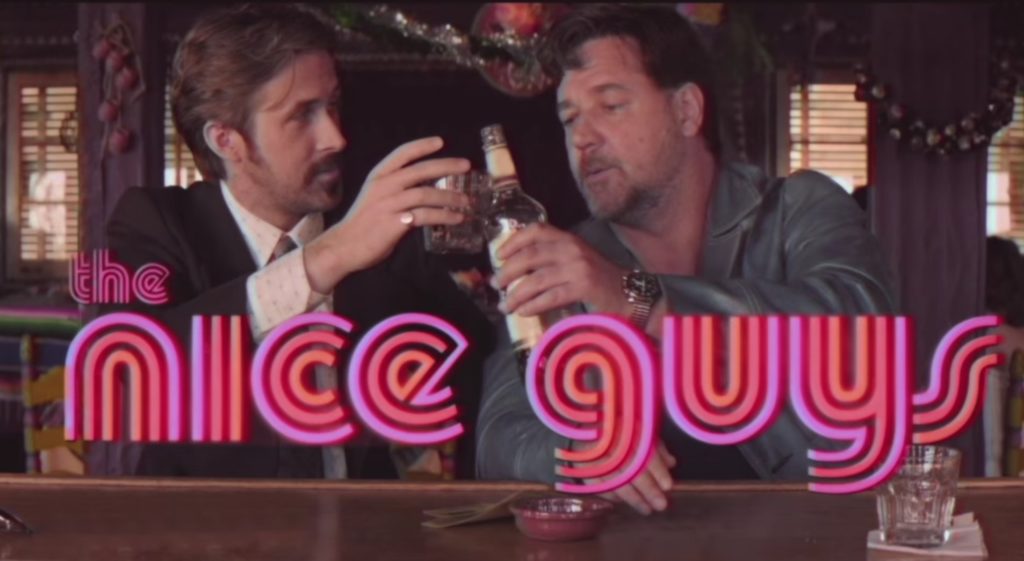
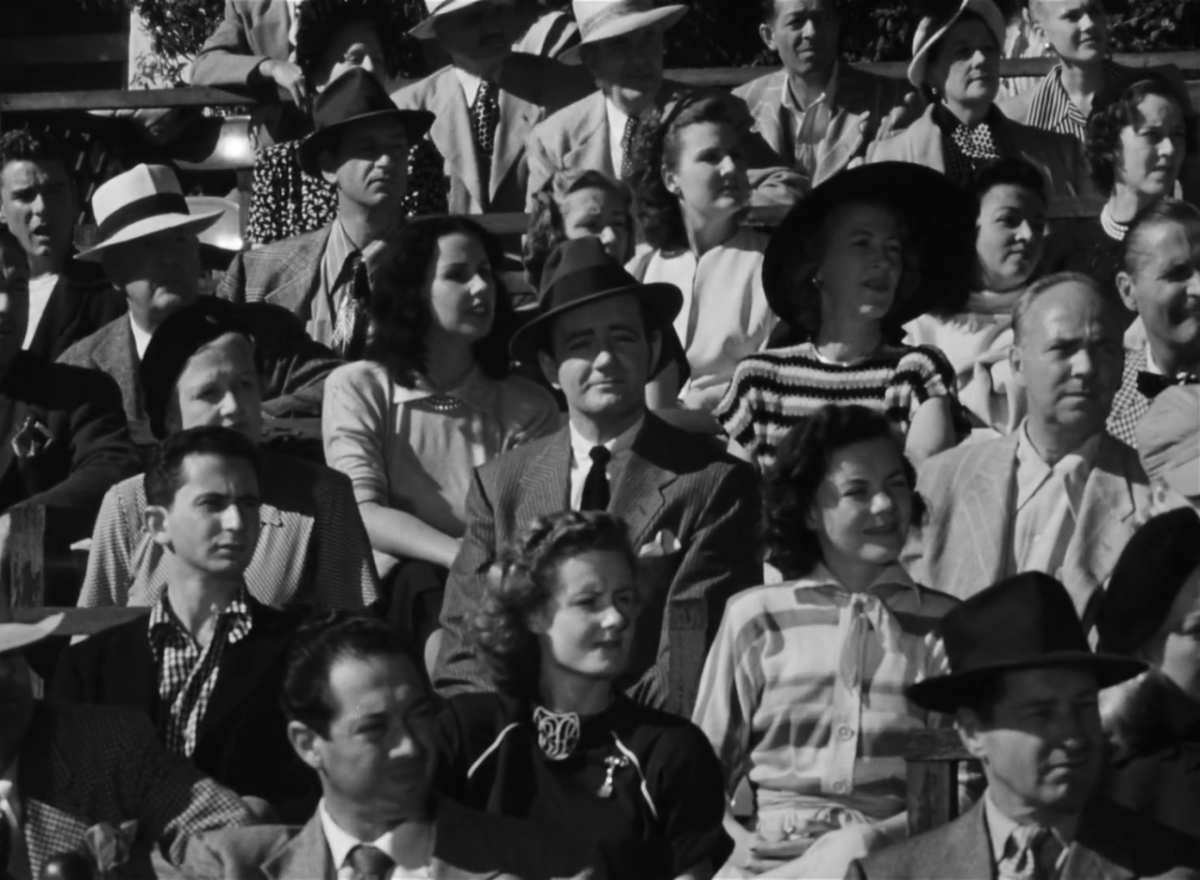
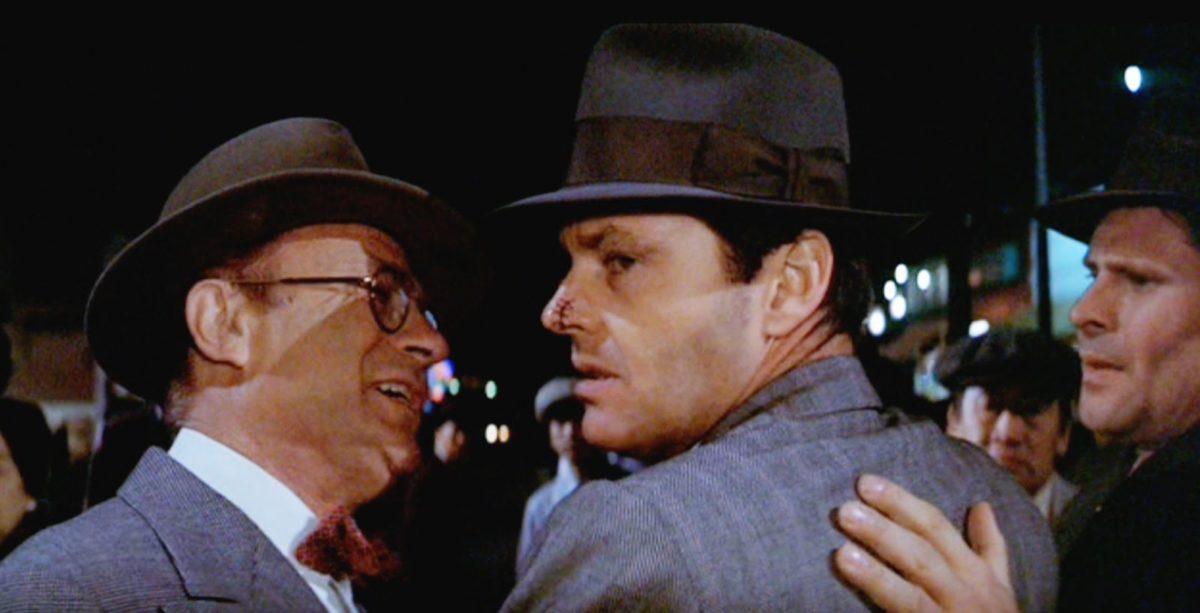
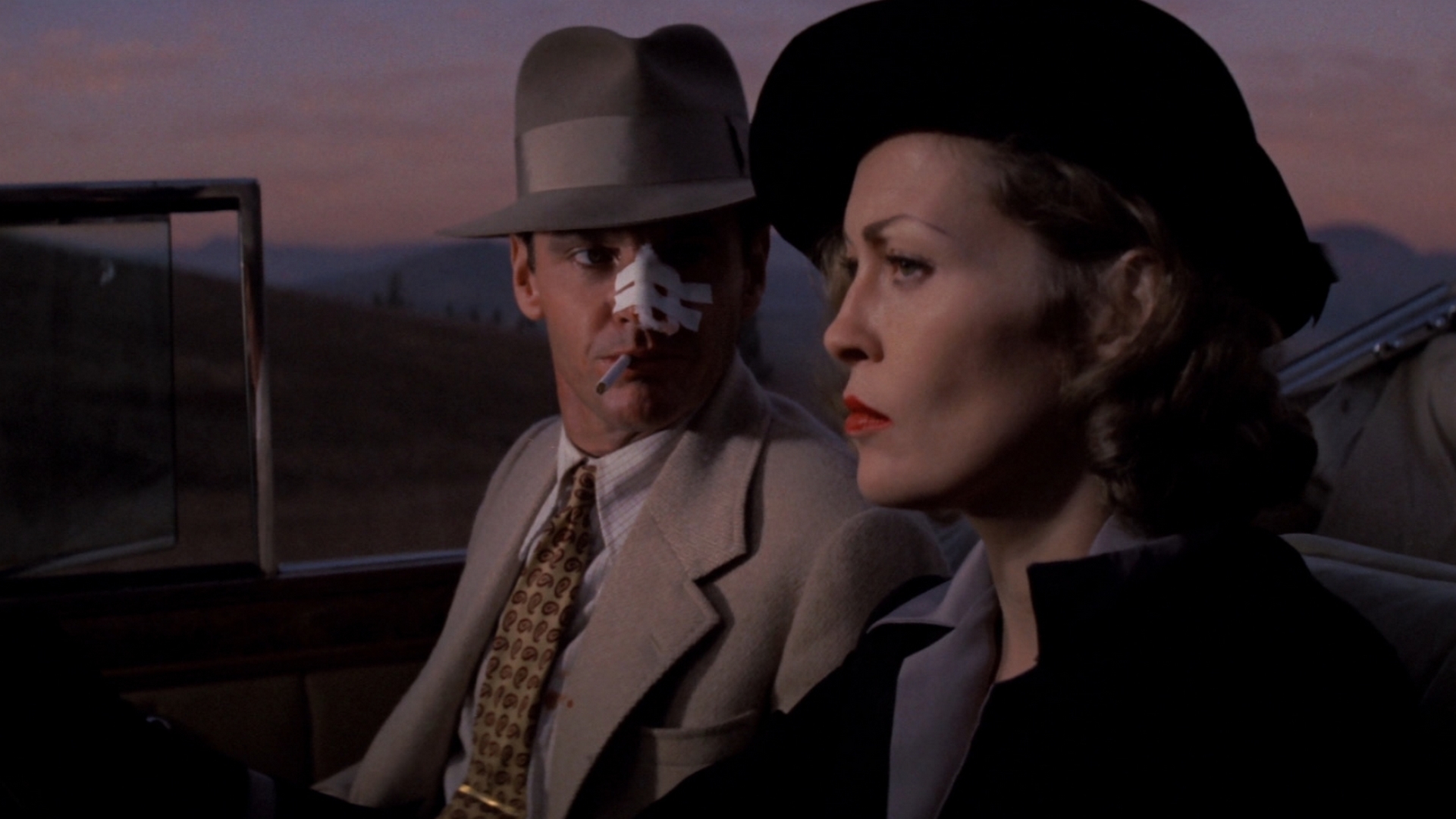 Gittes suspects that Hollis was murdered and launches his own investigation. This eventually leads Jake to Hollis’s former business partner, Noah Cross (John Huston). Noah also happens to be the father of Evelyn and he offers double Gittes’ fee if Gittes will track down Hollis’s younger girlfriend. As his investigation continues, Gittes discovers that Hollis’ murder was connected to both the continued growth of Los Angeles as a city and a truly unspeakable act that occurred several years in the past. Nobody, it turns out, is what he or she originally appears to be. I really can’t say anything more without spoiling the film for those who haven’t seen it before.
Gittes suspects that Hollis was murdered and launches his own investigation. This eventually leads Jake to Hollis’s former business partner, Noah Cross (John Huston). Noah also happens to be the father of Evelyn and he offers double Gittes’ fee if Gittes will track down Hollis’s younger girlfriend. As his investigation continues, Gittes discovers that Hollis’ murder was connected to both the continued growth of Los Angeles as a city and a truly unspeakable act that occurred several years in the past. Nobody, it turns out, is what he or she originally appears to be. I really can’t say anything more without spoiling the film for those who haven’t seen it before. 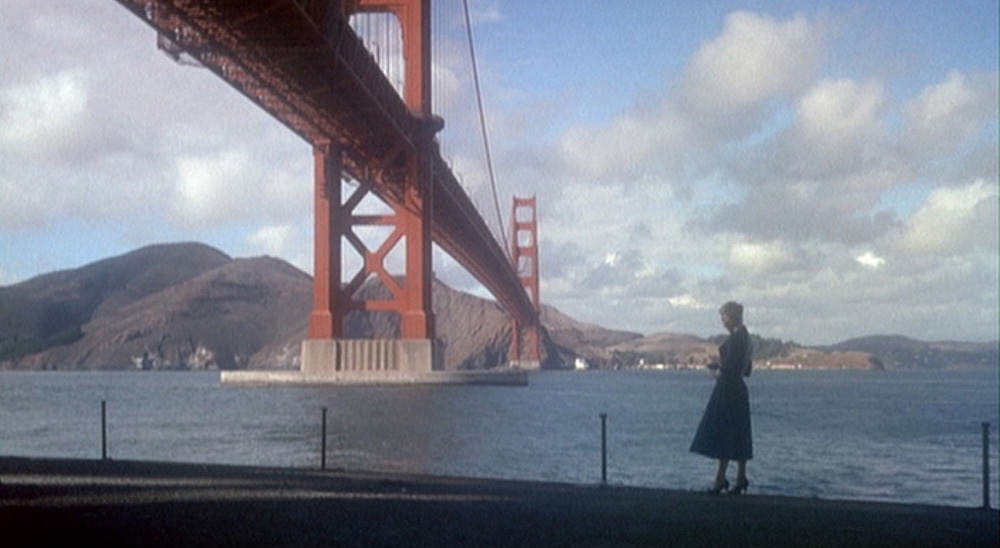
 Vertigo is a psychological thriller film directed by Alfred Hitchcock. The film stars Jimmy Stewart as a former police detective John “Scottie” Ferguson, who has been forced into early retirement due to his discovery of crippling acrophobia and vertigo. Scottie is hired as a private investigator to follow a woman, Madeleine Elster (Kim Novak) who is behaving peculiarly. The film received mixed reviews upon initial release, but has garnered acclaim since and is now often cited as one of the defining works of his career. It is currently listed at #65 on the IMDb Top 250, which I think is a travesty. It shows you what type of list the IMDb Top 250 is, to see this film and others, like Citizen Kane, outside of the top 50, but The Dark Knight currently holds the #4 place. But in the 2012 British Film Institute’s Sight & Sound critics’ poll, it replaced Citizen Kane as the best film of all time and has appeared repeatedly in best film polls by the American Film Institute.
Vertigo is a psychological thriller film directed by Alfred Hitchcock. The film stars Jimmy Stewart as a former police detective John “Scottie” Ferguson, who has been forced into early retirement due to his discovery of crippling acrophobia and vertigo. Scottie is hired as a private investigator to follow a woman, Madeleine Elster (Kim Novak) who is behaving peculiarly. The film received mixed reviews upon initial release, but has garnered acclaim since and is now often cited as one of the defining works of his career. It is currently listed at #65 on the IMDb Top 250, which I think is a travesty. It shows you what type of list the IMDb Top 250 is, to see this film and others, like Citizen Kane, outside of the top 50, but The Dark Knight currently holds the #4 place. But in the 2012 British Film Institute’s Sight & Sound critics’ poll, it replaced Citizen Kane as the best film of all time and has appeared repeatedly in best film polls by the American Film Institute.



 Anyway, onto the movie. Have you ever had a dream that freaked you out and left you gasping for breath as you rushed back to consciousness? When your loved ones come in the room to check if you are okay all you can say is I had a bad dream. Invariably they will ask what it was about, but we can’t say because 1) the dream is quickly retreating into our sub conscience, and 2) because no matter how well you explain what happened in the dream you sound psychotic. Mulholland Dr. is that creepy dream.
Anyway, onto the movie. Have you ever had a dream that freaked you out and left you gasping for breath as you rushed back to consciousness? When your loved ones come in the room to check if you are okay all you can say is I had a bad dream. Invariably they will ask what it was about, but we can’t say because 1) the dream is quickly retreating into our sub conscience, and 2) because no matter how well you explain what happened in the dream you sound psychotic. Mulholland Dr. is that creepy dream. To truly enjoy it, you must surrender yourself to it. As Roger Ebert said, “If you require logic, see something else.”
To truly enjoy it, you must surrender yourself to it. As Roger Ebert said, “If you require logic, see something else.”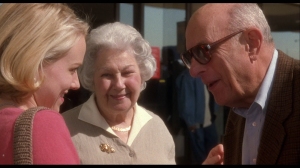 Also, this film features what I think should have been at the very least and Oscar Nominated performance by Naomi Watts. It would have been more deserved than Halle Berry for Monster’s Ball, and far more that Renée Zellweger for Bridget Jones’ DiaryNaomi Watts is engaging on both sides of the coin of her character. On one hand she is Betty, the perky and naïve, but very talented newcomer to Hollywood. On the other, she is Diane, the frustrated and depressed reality of the too-good-to-be-true Betty. She pulls this off so well that I didn’t realize that it was the same actress playing both parts until well into watching the film the first time. I’m still waiting for Ms. Watts to reach the climax of her career, she has made a number of good films, but nothing to set her apart from every other fair-skinned, blue-eyed, blonde in Hollywood.
Also, this film features what I think should have been at the very least and Oscar Nominated performance by Naomi Watts. It would have been more deserved than Halle Berry for Monster’s Ball, and far more that Renée Zellweger for Bridget Jones’ DiaryNaomi Watts is engaging on both sides of the coin of her character. On one hand she is Betty, the perky and naïve, but very talented newcomer to Hollywood. On the other, she is Diane, the frustrated and depressed reality of the too-good-to-be-true Betty. She pulls this off so well that I didn’t realize that it was the same actress playing both parts until well into watching the film the first time. I’m still waiting for Ms. Watts to reach the climax of her career, she has made a number of good films, but nothing to set her apart from every other fair-skinned, blue-eyed, blonde in Hollywood. Do yourself a favor, check out Mulholland Dr. set aside all the distractions and just let it wash over you. Then come back and give me all your theories about what is really going on. There are literally dozens of different theories. If you’ve already seen the movie, you can check them out at
Do yourself a favor, check out Mulholland Dr. set aside all the distractions and just let it wash over you. Then come back and give me all your theories about what is really going on. There are literally dozens of different theories. If you’ve already seen the movie, you can check them out at 
 Hitchcock collaborated with Thornton Wilder, author of Our Town, to portray Santa Rosa, California as Hometown U.S.A. With warm lighting and a friendly atmosphere, they deliberately makes us prefer the small Santa Rosa to the cold and industrial backdrop of Philadelphia. Hitchcock wanted to slowly introduce some darkness to these bright and cheerful surroundings. This was a social commentary in his day. While this film was produced and released in 1943, it is set in 1941. Many people my age wouldn’t even blink at the simple two year difference, but anyone who lived during those two years knows that they weren’t ordinary years. The bombing that occurred on December 7, 1941 irreparably changed the world the same way that the arrival of Uncle Charlie did that peaceful family and especially his admiring niece Charlotte.
Hitchcock collaborated with Thornton Wilder, author of Our Town, to portray Santa Rosa, California as Hometown U.S.A. With warm lighting and a friendly atmosphere, they deliberately makes us prefer the small Santa Rosa to the cold and industrial backdrop of Philadelphia. Hitchcock wanted to slowly introduce some darkness to these bright and cheerful surroundings. This was a social commentary in his day. While this film was produced and released in 1943, it is set in 1941. Many people my age wouldn’t even blink at the simple two year difference, but anyone who lived during those two years knows that they weren’t ordinary years. The bombing that occurred on December 7, 1941 irreparably changed the world the same way that the arrival of Uncle Charlie did that peaceful family and especially his admiring niece Charlotte. As we get closer to Christmas, I know that I will inevitably see at least a scene or two from Frank Capra’s It’s a Wonderful Life. If you think about it, Hitchcock is like the anti-Capra. Another classic-film lover named Bill Wren said on his blog
As we get closer to Christmas, I know that I will inevitably see at least a scene or two from Frank Capra’s It’s a Wonderful Life. If you think about it, Hitchcock is like the anti-Capra. Another classic-film lover named Bill Wren said on his blog  So what happens when young Charlie realizes the truth about her beloved Uncle? Will she get a chance to reveal his secret, or will he choke her into silent submission? I won’t ruin that ending of the movie for you. Take an hour and a half off and watch it yourself. By the end, you will be humming the Merry Widow Waltz and contemplating the state of the world. What do you think of Uncle Charlie’s assessment of our lives? “You live in a dream. You’re a sleepwalker, blind. How do you know what the world is like? Do you know the world is a foul sty? Do you know, if you rip off the fronts of houses, you’d find swine? The world’s a hell. What does it matter what happens in it? Wake up, Charlie.”
So what happens when young Charlie realizes the truth about her beloved Uncle? Will she get a chance to reveal his secret, or will he choke her into silent submission? I won’t ruin that ending of the movie for you. Take an hour and a half off and watch it yourself. By the end, you will be humming the Merry Widow Waltz and contemplating the state of the world. What do you think of Uncle Charlie’s assessment of our lives? “You live in a dream. You’re a sleepwalker, blind. How do you know what the world is like? Do you know the world is a foul sty? Do you know, if you rip off the fronts of houses, you’d find swine? The world’s a hell. What does it matter what happens in it? Wake up, Charlie.”